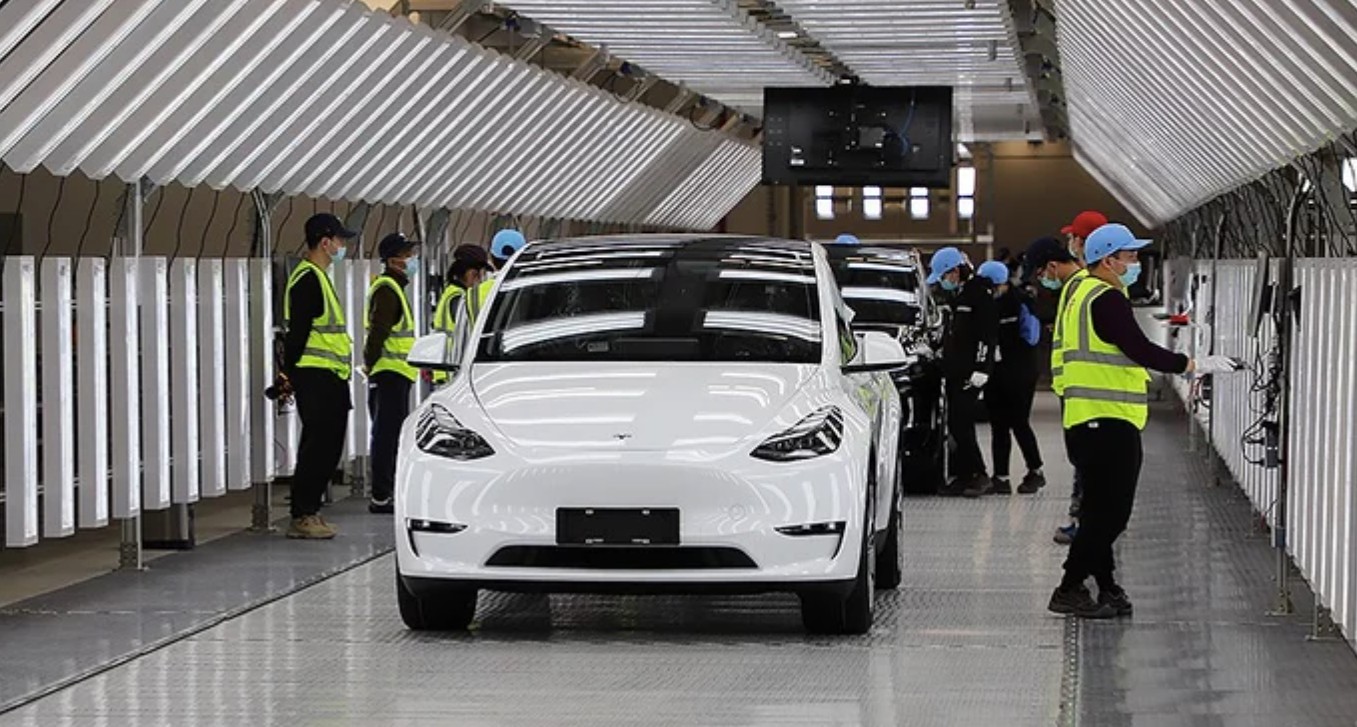
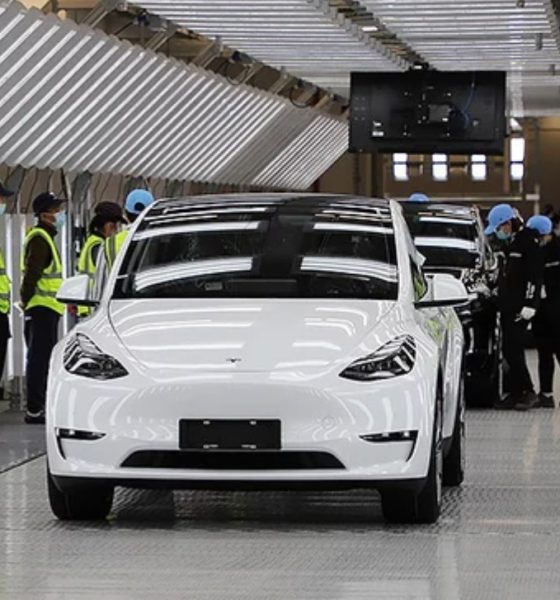
Investor's Corner
Tesla’s market disruption may lead to healthy slice of global auto market: Mizuho
Tesla (NASDAQ: TSLA) is expected to control 10% of the global automotive market in the coming years, analysts from Tokyo-based Mizuho Bank said in a recent note to investors. Tesla’s disruption of the global automotive market through its high-tech and affordable electric vehicles could ultimately lead to the company producing 1-out-of-10 cars on the road in the coming years.
Over the past few years, the transition to electrification in passenger vehicles has accelerated greatly, mostly due to Tesla’s mainstream success as an automaker. The company’s influence on the global automotive market has been identified as disruptive and has caused OEMs like GM, Ford, and others to consider rolling out new electrified models, a plan that has culminated in some of the largest car companies in the world to change their long-term supply chain plans. Instead of focusing on purchasing combustion engines, these legacy automotive companies are opting for battery cells instead, making lofty but sufficient manufacturing goals that hint toward a future of fully electrified fleets.
Tesla has captured a considerable portion of the battery electric vehicle (BEV) market over the past four years, mostly due to its introduction of mass-market EVs that are affordable and land around the price point of an average new car in 2021, according to Kelley Blue Book. While Tesla has raised prices on many of its models over the past several months as the company, among others, combats a global shortage of semiconductors and other critical parts of an EV’s DNA, Tesla still holds the reputation for the most advanced electric vehicles on the market at the most competitive prices. For the performance, range, and software that owners receive with Teslas, there isn’t a much better bang for your buck.
Analysts at Mizuho Bank agree, according to a note that the firm sent to investors. While Mizuho analyst Vijay Rakesh identifies the growing global EV market and Tesla’s domination of it, he is aware of incoming competitors. Not signaling that Tesla will encounter tremendous disruption from competitors, new or old, Rakesh’s money would likely be on Tesla if this were a betting situation.
The analyst wrote (via Seeking Alpha):
“Total BEV penetration is at 7.4% in Europe and 6.8% in China, while the U.S. lags at 1.9%. The up and comers still face challenges with VW sales lagging, while GM appears to be getting traction from its ~ $4K HongGuang Mini EV in China.”
Tesla held around 24% of the global BEV market in Q1, mostly due to impressive sales figures of the Model 3 and Model Y combined with Tesla’s continuing trend of Quarter-over-Quarter growth. While this is impressive, the real disruption will occur when Tesla starts to take a substantial slice of the overall automotive market. Rakesh believes the company could achieve up to 10% of the global automotive market, taking more gas-powered engines off the road than many could imagine.
Mizuho is bullish on the idea that TSLA could gain further traction in the EV market by leaving behind legacy companies and newcomers to the BEV sector due to its overwhelming lead in battery tech and autonomous driving developments. The company’s considerable lead in both of these categories makes it a prime candidate to begin even more disruption of the global automotive market. Mizuho believes Tesla could achieve at least 10% of the total market share in the coming years.
Rakesh is ranked 93 out of 7,551 analysts on TipRanks and holds a five-star rating with an average return of 26.3% and a success rate of 69%. He holds Tesla with an $820.00 price target and a “Buy” rating for the stock.
Disclosure: Joey Klender is a TSLA Shareholder.

Investor's Corner
Tesla Earnings Call: Top 5 questions investors are asking
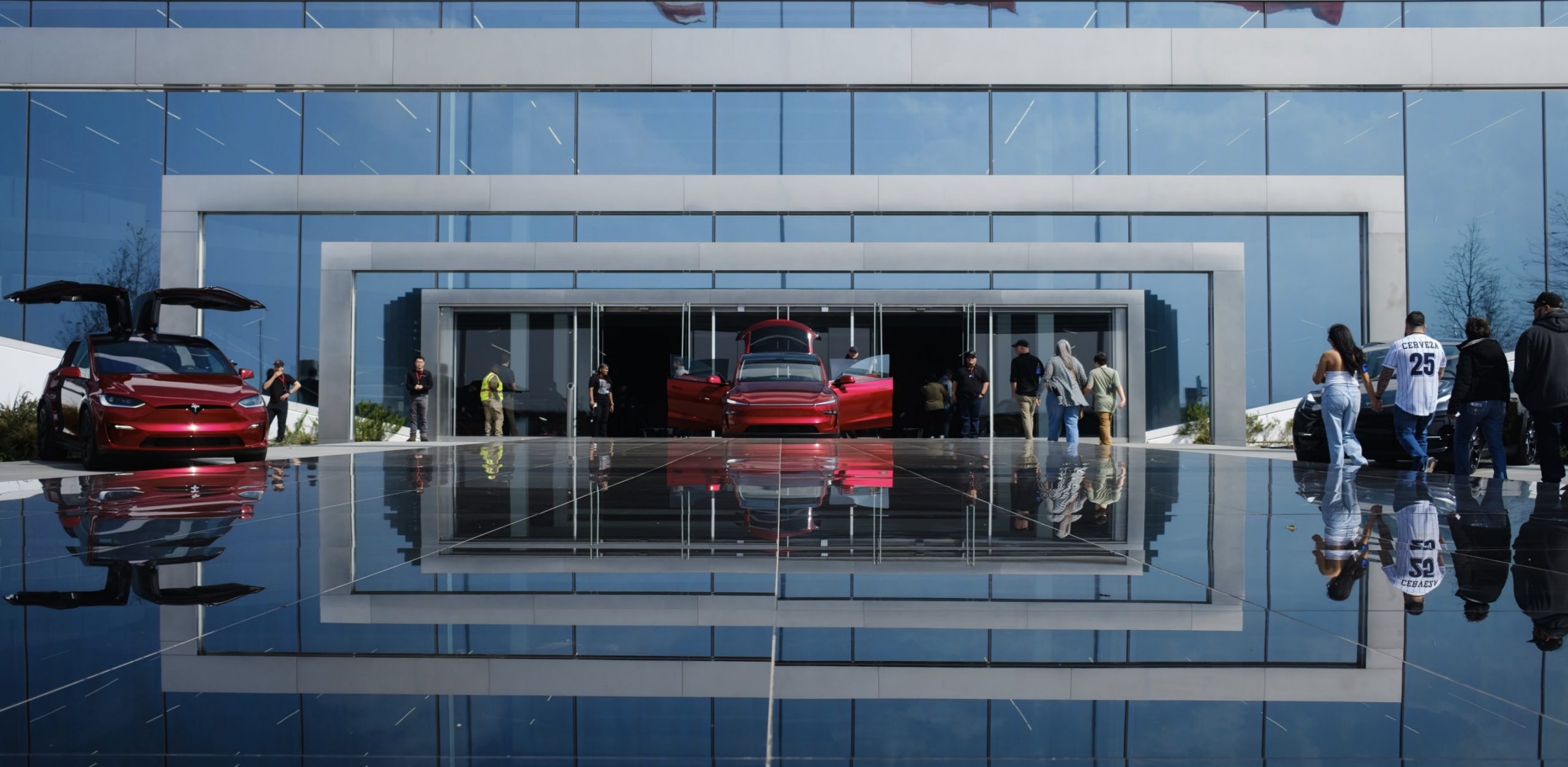
Tesla has scheduled its Earnings Call for Q4 and Full Year 2025 for next Wednesday, January 28, at 5:30 p.m. EST, and investors are already preparing to get some answers from executives regarding a wide variety of topics.
The company accepts several questions from retail investors through the platform Say, which then allows shareholders to vote on the best questions.
Tesla does not answer anything regarding future product releases, but they are willing to shed light on current timelines, progress of certain projects, and other plans.
There are five questions that range over a variety of topics, including SpaceX, Full Self-Driving, Robotaxi, and Optimus, which are currently in the lead to be asked and potentially answered by Elon Musk and other Tesla executives:
- You once said: Loyalty deserves loyalty. Will long-term Tesla shareholders still be prioritized if SpaceX does an IPO?
- Our Take – With a lot of speculation regarding an incoming SpaceX IPO, Tesla investors, especially long-term ones, should be able to benefit from an early opportunity to purchase shares. This has been discussed endlessly over the past year, and we must be getting close to it.
- When is FSD going to be 100% unsupervised?
- Our Take – Musk said today that this is essentially a solved problem, and it could be available in the U.S. by the end of this year.
- What is the current bottleneck to increase Robotaxi deployment & personal use unsupervised FSD? The safety/performance of the most recent models or people to monitor robots, robotaxis, in-car, or remotely? Or something else?
- Our Take – The bottleneck seems to be based on data, which Musk said Tesla needs 10 billion miles of data to achieve unsupervised FSD. Once that happens, regulatory issues will be what hold things up from moving forward.
- Regarding Optimus, could you share the current number of units deployed in Tesla factories and actively performing production tasks? What specific roles or operations are they handling, and how has their integration impacted factory efficiency or output?
- Our Take – Optimus is going to have a larger role in factories moving forward, and later this year, they will have larger responsibilities.
- Can you please tie purchased FSD to our owner accounts vs. locked to the car? This will help us enjoy it in any Tesla we drive/buy and reward us for hanging in so long, some of us since 2017.
- Our Take – This is a good one and should get us some additional information on the FSD transfer plans and Subscription-only model that Tesla will adopt soon.
Tesla will have its Earnings Call on Wednesday, January 28.
Elon Musk
Tesla locks in Elon Musk’s top problem solver as it enters its most ambitious era
The generous equity award was disclosed by the electric vehicle maker in a recent regulatory filing.
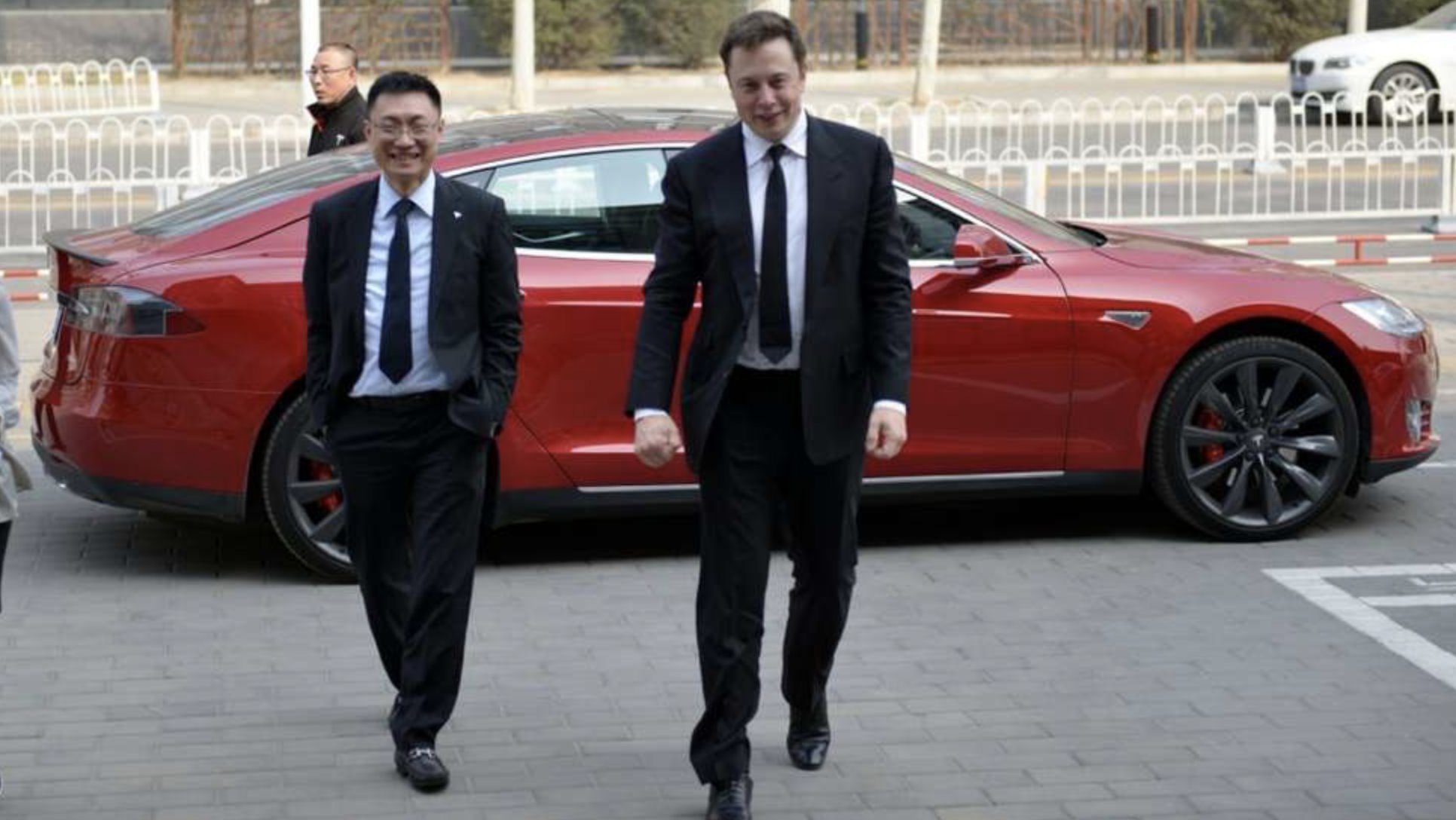
Tesla has granted Senior Vice President of Automotive Tom Zhu more than 520,000 stock options, tying a significant portion of his compensation to the company’s long-term performance.
The generous equity award was disclosed by the electric vehicle maker in a recent regulatory filing.
Tesla secures top talent
According to a Form 4 filing with the U.S. Securities and Exchange Commission, Tom Zhu received 520,021 stock options with an exercise price of $435.80 per share. Since the award will not fully vest until March 5, 2031, Zhu must remain at Tesla for more than five years to realize the award’s full benefit.
Considering that Tesla shares are currently trading at around the $445 to $450 per share level, Zhu will really only see gains in his equity award if Tesla’s stock price sees a notable rise over the years, as noted in a Sina Finance report.
Still, even at today’s prices, Zhu’s stock award is already worth over $230 million. If Tesla reaches the market cap targets set forth in Elon Musk’s 2025 CEO Performance Award, Zhu would become a billionaire from this equity award alone.
Tesla’s problem solver
Zhu joined Tesla in April 2014 and initially led the company’s Supercharger rollout in China. Later that year, he assumed the leadership of Tesla’s China business, where he played a central role in Tesla’s localization efforts, including expanding retail and service networks, and later, overseeing the development of Gigafactory Shanghai.
Zhu’s efforts helped transform China into one of Tesla’s most important markets and production hubs. In 2023, Tesla promoted Zhu to Senior Vice President of Automotive, placing him among the company’s core global executives and expanding his influence beyond China. He has since garnered a reputation as the company’s problem solver, being tapped by Elon Musk to help ramp Giga Texas’s vehicle production.
With this in mind, Tesla’s recent filing seems to suggest that the company is locking in its top talent as it enters its newest, most ambitious era to date. As could be seen in the targets of Elon Musk’s 2025 pay package, Tesla is now aiming to be the world’s largest company by market cap, and it is aiming to achieve production levels that are unheard of. Zhu’s talents would definitely be of use in this stage of the company’s growth.
Investor's Corner
Tesla analyst teases self-driving dominance in new note: ‘It’s not even close’
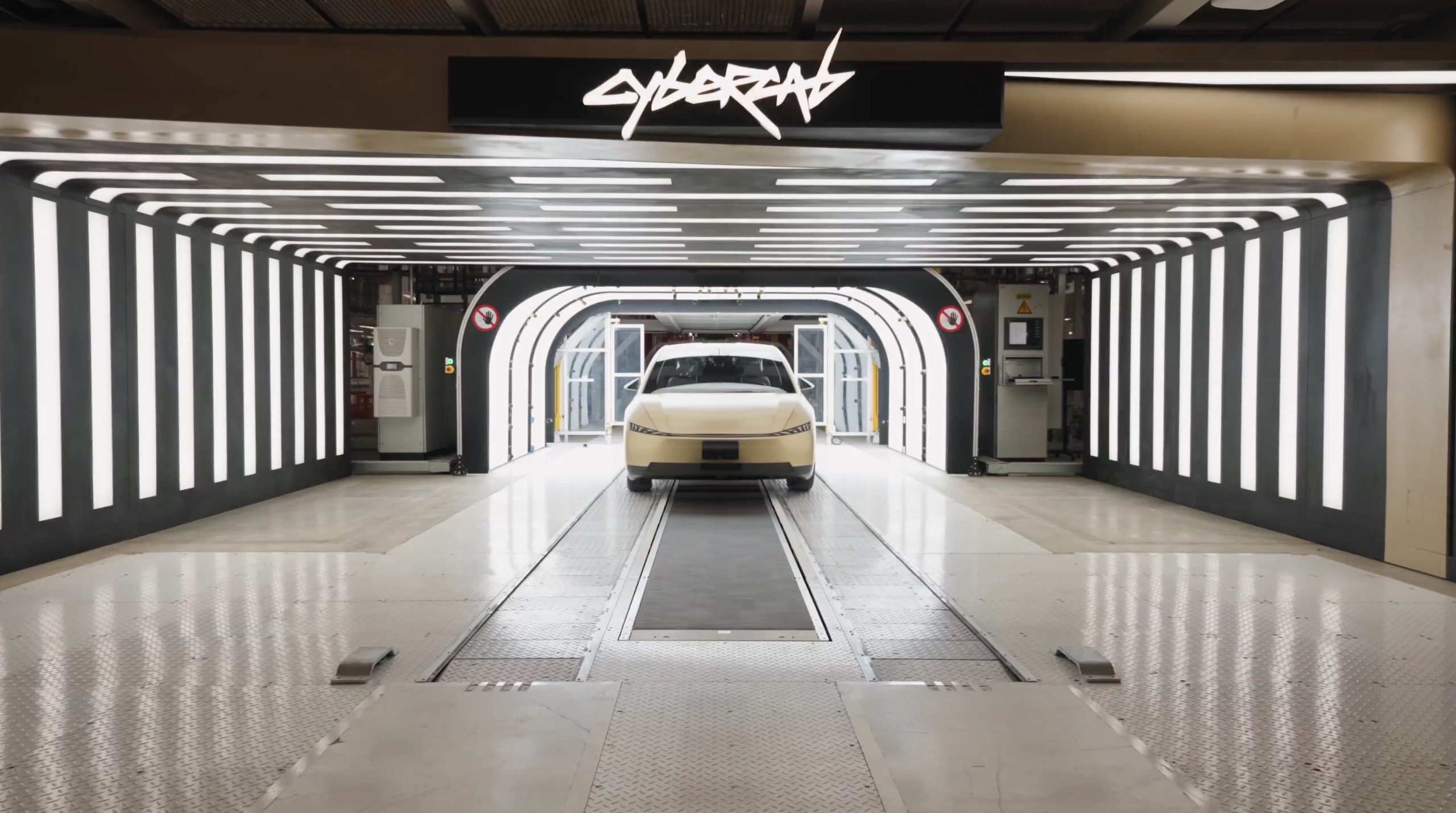
Tesla analyst Andrew Percoco of Morgan Stanley teased the company’s dominance in its self-driving initiative, stating that its lead over competitors is “not even close.”
Percoco recently overtook coverage of Tesla stock from Adam Jonas, who had covered the company at Morgan Stanley for years. Percoco is handling Tesla now that Jonas is covering embodied AI stocks and no longer automotive.
His first move after grabbing coverage was to adjust the price target from $410 to $425, as well as the rating from ‘Overweight’ to ‘Equal Weight.’
Percoco’s new note regarding Tesla highlights the company’s extensive lead in self-driving and autonomy projects, something that it has plenty of competition in, but has established its prowess over the past few years.
He writes:
“It’s not even close. Tesla continues to lead in autonomous driving, even as Nvidia rolls out new technology aimed at helping other automakers build driverless systems.”
Percoco’s main point regarding Tesla’s advantage is the company’s ability to collect large amounts of training data through its massive fleet, as millions of cars are driving throughout the world and gathering millions of miles of vehicle behavior on the road.
This is the main point that Percoco makes regarding Tesla’s lead in the entire autonomy sector: data is King, and Tesla has the most of it.
One big story that has hit the news over the past week is that of NVIDIA and its own self-driving suite, called Alpamayo. NVIDIA launched this open-source AI program last week, but it differs from Tesla’s in a significant fashion, especially from a hardware perspective, as it plans to use a combination of LiDAR, Radar, and Vision (Cameras) to operate.
Percoco said that NVIDIA’s announcement does not impact Morgan Stanley’s long-term opinions on Tesla and its strength or prowess in self-driving.
NVIDIA CEO Jensen Huang commends Tesla’s Elon Musk for early belief
And, for what it’s worth, NVIDIA CEO Jensen Huang even said some remarkable things about Tesla following the launch of Alpamayo:
“I think the Tesla stack is the most advanced autonomous vehicle stack in the world. I’m fairly certain they were already using end-to-end AI. Whether their AI did reasoning or not is somewhat secondary to that first part.”
Percoco reiterated both the $425 price target and the ‘Equal Weight’ rating on Tesla shares.








